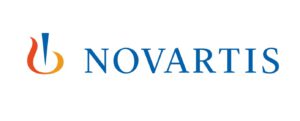EPIK-B5 Study
This study can enroll adult men and postmenopausal women with advanced HR-positive, HER2-negative breast cancer with a PIK3CA mutation
Breast cancer has various classifications, including by stage or growth rate. For treatment, it is important to determine whether certain proteins (receptors) are present on the tumor’s surface. This is referred to as hormone receptor status (estrogen and progesterone) and HER2 status. Treatment consists of various therapies. For example, surgery is often performed, supplemented by chemotherapy or radiation. Individualized hormone therapy can also be administered, adapted to the hormone receptor status.
What is being investigated in this study?
BYL719 – Investigational Drug: inhibits the activity of the protein PI3K (phosphatidylinositol-3-kinase), thereby influencing a specific signaling pathway. Changes in the PIK3CA gene (a gene that influences the PI3K protein) or the PTEN protein (phosphatase and tensin homolog) are responsible for the PI3K signaling pathway always being active. It is suspected that the activation of this pathway contributes to the onset and growth of tumors.
Fulvestrant – Standard Treatment: blocks the effect of the hormone estrogen in the body. This limits the promotion of tumor growth by estrogen.
What is the aim of the study?
The purpose of the study is to find out whether BYL719 in combination with the already approved active substance Fulvestrant is safe, well-tolerated, and effective.
How is the study conducted?
As part of the study, all participants receive Fulvestrant, either in combination with BYL719 or with a placebo (medication without active substance).
The probability of receiving BYL719 is 50% (1:1 chance).
The study is divided into the following sections:
Screening: a detailed check is performed to determine if the study is suitable for interested participants. During the screening, a molecular pre-examination to determine the PIK3CA mutation status also takes place. This phase can last up to 4 weeks.
Treatment Phase: If all participation requirements are met, patients are randomly assigned (randomization) to 2 treatment groups:
Group 1: receives the investigational drug BYL719
Group 2: receives a dummy drug (placebo)
The study takes place in treatment cycles of 28 days each. All participants receive Fulvestrant as an intramuscular injection on Day 1 and 15 of the first cycle, and on Day 1 of subsequent cycles. The study medication corresponding to the group, BYL719 or placebo, is taken by participants at home as a capsule.
Follow-up Phase: the health status of the participants continues to be observed, without medication being administered.
Are there risks?
Side effects may occur during study treatment. These can vary from person to person. Therefore, the health of study participants is closely monitored throughout the entire study. Those interested in participating should discuss the risks of study participation with the study physician beforehand. This allows them to make a well-informed, personal assessment of all advantages and disadvantages.
Eligibility Criteria
Eligibility includes:
- for postmenopausal women
- for adult men who are sterilized or use condoms for contraception
- with diagnosed locally advanced or metastatic breast cancer
- patients must have already undergone prior therapy with an aromatase inhibitor in combination with a CDK4/6 inhibitor
The study physician at a study center will provide information on the exact participation requirements, nature, significance, risks, and scope of the study. The study physician decides whether individual participation in the study is medically possible. This decision is made based on all medical specifications, which are precisely defined for each study.
This study is commissioned and financed by:

